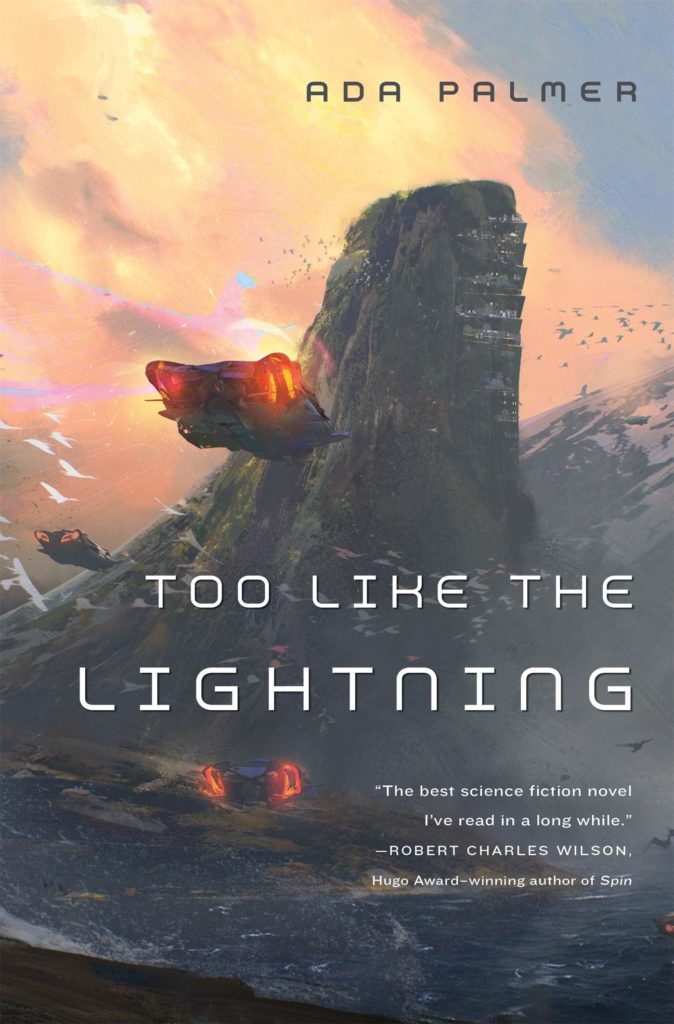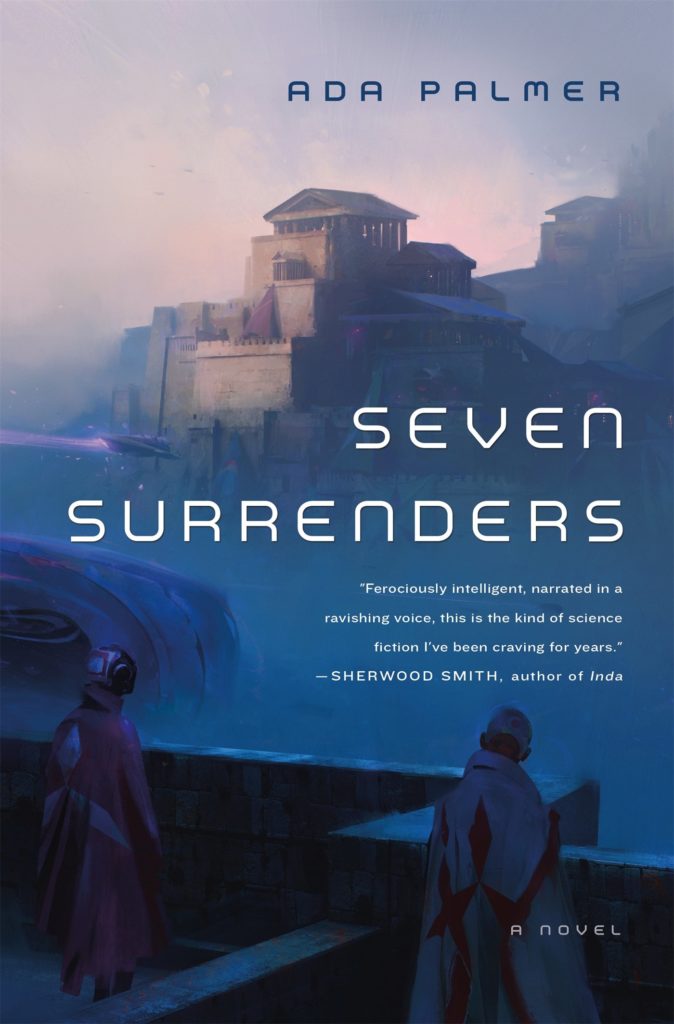
On Friday Jan 15th we met for our second Cyberpunk Research Network book club and discussed Ada Palmer’s Too Like the Lightning and Seven Surrenders via Discord.
We had a smaller group this time, but nevertheless a great and insigthful discussion.
For those of you not present, here is a little summary and teaser of what you missed. It is subjective and just a few notes, but it might give you an idea and convince you to participate in our next session.

As like last time, we started our discussion with the general appreciation for the novels, with a special focus on what we like. Most agreed that the mixture of older language style, textual anachronism and formalized phrasing was unusual and intriguing. We deemed the novels to be “humanities SF” or “SF of ideas”.
Some of us voiced that they were concerned about the novels at first, as these proposed to deal with philosophy and the history of thought, much like Jostein Gaarder’s Sophie’s World. The fear was that the novels would expect readers to have pre-knowledge or would feel too didactic, but we felt this was not the case. Instead, the ideas were presented for uninitiated readers and set apart from the narrative motions.
We then embarked on a long discussion of the idea of utopia – whether the depicted world would qualify as such and how the novel accomplished a great spread of world-building ideas. How an ideology was constructed out of lifestyles instead of spiritual beliefs and how in all, we had the feeling that the novels depicted a kind of meta-utopia for the humanities, in which language, criticism, culture were all based on ideologies within society. The breadth of the offered viewpoints and perspectives to build the society with was very alluring. Values determine each hive’s lifeworld reality.
We also discussed the issues of faith and taboo, how they might be interrelated and how religion instead of ideology seems like a fatalistic choice in the novel, unchangeable and forcing individuals to act a certain way. The hive ideologies instead felt more open and variable than religion was portrayed. We discussed whether faith was educated into people or an inherent feature.
We went on to discuss Mycroft and his redemption arc and how he was deeply engrained with the concept of providence. This is doubly reflective in the narrative, both in the sense of A.I. directing the life in the world and in the hive’s decision to play “God” – a choice on the part of the leaders to keep up an equilibrium of forces. We also discussed JEDD Mason but did not quite conclude on how to take his belief in being a god and whether the novel is serious or metaphorical about this.
Then we talked about the hives and their tendency to fetishize specific aspects of material culture (the Humanist and their boots, Utopia and their coats, etc.), even going so far as to produce fetishes like the person of Sniper. We felt that the humanists especially were cultivating a cult of personality.
Finally, we discussed how power was distributed in the novels. Who decides the fate of humanity and why. How secrets and clandestine plotting were part of this otherwise very transparent society and how this led to a very mechanistic and fatalistic view of society, where some could be sacrificed to keep the system running. We questioned whether it was ok to stop the war in a world in which technology is rapidly progressing or whether human nature needed to destroy itself partially in regular intervals.
And lastly, we shortly discussed the appeal of the different hives and where we would place ourselves in the Terra Ignota world. Which labels would we choose for ourselves … so, which would you choose?